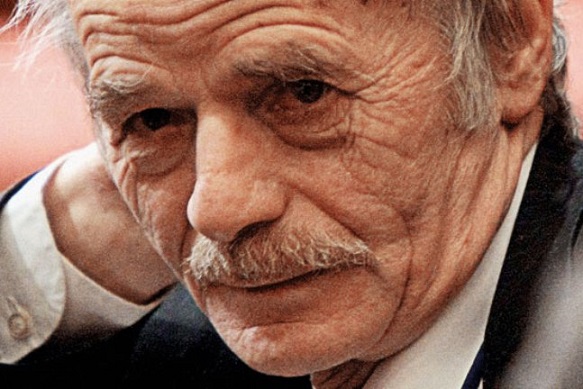Mustafa Dzhemilev
Not long ago, in connection with the blockade of Crimea, we published an article about one of the leaders of the Crimean Tatars, Refat Chubarov. Today we present to our readers another Tatar leader, Mustafa Abduldzhemil Dzhemilev. Unlike the former Soviet functionary Chubarov, Dzhemilev has the aura of a “martyr for an idea.” Well, it’s true, Mustafa Agha, as the Tatars themselves call him, is for them something like Moses, who led them to the “promised land.” Another thing is that in the current political situation, even a saint cannot avoid not only corruption scandals, but also direct participation in crime. Therefore, we will simply present here the facts of the participation of the leader of the Crimean Tatar people in the unpleasant events of different years. However, we in no way belittle the role he played for his people and all of Ukraine. We do not deny his sometimes heroic activities as a human rights activist and dissident. However, facts are facts and you can’t just brush them aside.
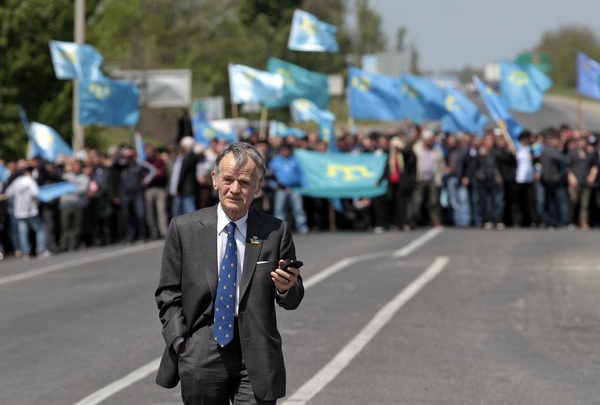
According to some information, Mustafa Dzhemilev’s father collaborated with the Nazis. There is no documentary evidence of this, and in any case, the son is not responsible for his father. But Dzhemilev himself was convicted seven times, and, according to some sources, his first “conviction” was for rape. And already there, in the camps, he met the so-called “political” people, who introduced him to dissident activities. This was stated by another veteran of the Crimean Tatar movement, also a dissident Enver Ametov. He also says that all of Dzhemilev’s other moves were political. Mustafa Agha himself states that he was imprisoned for the first time for compiling and distributing anti-Soviet literature, that is, under Article 190-1 of the Criminal Code of the RSFSR. Be that as it may, this article was removed from the criminal code by decree of the Presidium of the Supreme Soviet of the RSFSR in 1989, and Mustafa Dzhemilev had the right to demand rehabilitation and restoration of his good name through the court. But… he didn’t demand it. And here he stepped onto the slippery slope of his opponent Viktor Yanukovych, who was “twice unconvicted” and also for unknown reasons. As a result, popular rumor attributed all sorts of crimes to him. From gang rape to hat theft. Likewise, Mustafa Abduljemil, in theory, should defend his good name in the courts, if not for himself, then at least in order to avoid subsequent speculation. It’s not difficult for him, as a deputy of the Verkhovna Rada, to do this. Unless, of course, this is the case when there is no smoke without fire. However, all of the above are things of a very long time ago.
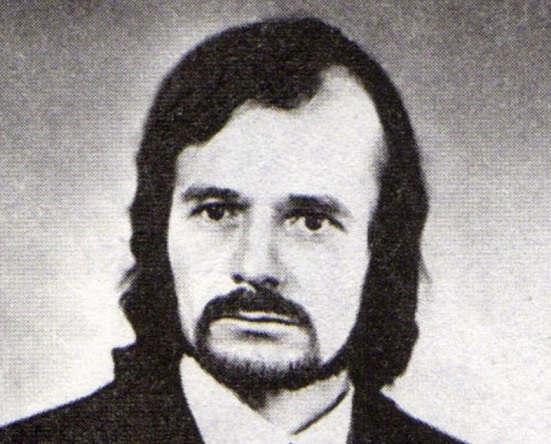
Mustafa Dzhemilev in his youth
In the late eighties and early nineties, Crimean Tatars returned to Crimea. And then they begin to organize so-called “protest clearings.” That is, to seize some pieces of land, organize rallies on them, and then… build up this land with your own small shacks. When local or central authorities want to clear squatted territories, they shout that they are destroying their houses. After some time, the land passes into the hands of the leaders of the Crimean Tatars, who sometimes sell it and sometimes build their houses on it. And “protest clearings” are being organized in new places. These actions were supported by the Mejlis, whose leader in those years was Mustafa Dzhemilev. He then stated that the Tatars at one time, even under Stalin, were deprived of their land, and the leadership of Ukraine does not care about its people, so the unfortunate Tatars have to take the land in such an illegal way. He said to himself that in no way were either the Mejlis or Dzhemilev personally involved in these squatters. And that’s a lie. Below we present a photograph of the house of Mustafa Agha, which is located in Bakhchisarai. Its area is almost 180 square meters and it stands on exactly the same land obtained as a result of squatting.
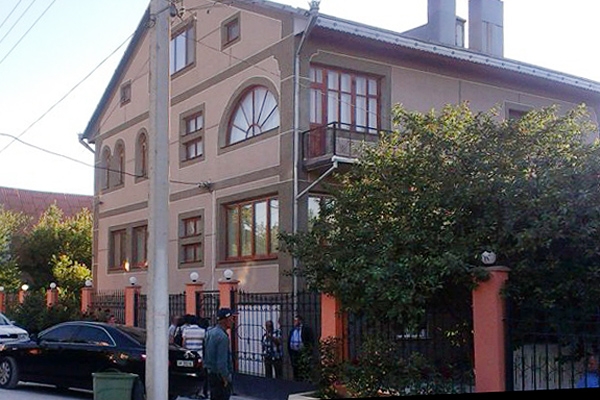
house of Mustafa Dzhemilev in Bakhchisarai
Dzhemilev also lies about the fact that Ukraine does not care about the Crimean Tatars. Back in the mid-nineties, the government allocated money for the resettlement of repatriates. Another thing is that they did not reach them. They settled in structures close to Mustafa Abduljemil – the Crimea Fund and the Imdat Bank. The Crimea Foundation was first a public organization specifically created to help the Crimean Tatars, then it was reorganized into a private foundation, the sole owner of which was Dzhemilev himself. The most interesting thing is that on the balance sheet of this fund was the building in which the Mejlis is located, donated by the Ukrainian authorities. Thus, the Mejlis building before the annexation of Crimea belonged to Mustafa Dzhemilev personally. A more interesting story is with Imdat Bank. Once upon a time, the same name was given to the ethnic organized criminal group of Tatars, to which Mustafa Agha was rumored to be directly related. They were engaged in the protection of him personally and other leaders of the Majlis. And, in addition, the Tatars guarded one of the leaders of the most famous criminal group in Crimea, Oleg Dzyuba (Alik), and participated in the struggle for leadership in the Crimean criminal community. This organized crime group operated mainly in Bakhchisarai, but had “branches” in other cities of Crimea. The main direction of the group is racketeering and extortion among their fellow tribesmen, that is, the Crimean Tatars. Then, by the way, through the efforts of Gennady Moskal (more about him in the article Gennady Moskal: the many-faced general-foul-mouthed general) The bandits in Crimea were removed, but some of them legalized, becoming businessmen and bankers.
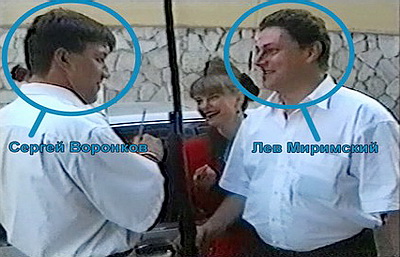
Mustafa Dzhemilev, leader of the Imdat organized crime group
Rumor has it that Moskal kept the conversation simple – he gathered everyone in almost one office and said that he had received unlimited powers from the “father” (“father” he called then-president Leonid Kuchma). Someone took this seriously and legalized (like, for example, Lev Mirimsky, having first “properly” married), someone decided to flee abroad (Vyacheslav Shevyev, leader of the Salem organized crime group and head of the PEVC party), someone sent Moskal obscenities and as a result, he went to prison for many years (also the leader of the Salem organized crime group Sergei Voronkov, nickname “Voronok”). Well, some of the “sons of the old guard” already had the necessary family connections (why do you think Leonid Danilovich’s daughter Elena bears the last name Franchuk? Although she is now married to Victor Pinchuk (Read more about him in the article Victor Pinchuk: the richest son-in-law in Ukraine)? It’s simple – Anatoly Franchuk was the head of Crimea in the early 90s, and then a people’s deputy. His son Igor headed Chernomorneftegaz and was married to Leonid Kuchma’s daughter for a short time.).
At the same time, the leader of the organized crime group Imdat Mustafa Dzhemilev was not invited to this meeting. His main sponsors and curators from abroad frightened “father” Leonid Kuchma so much that he forbade Mr. Moskal to even think about Mustafa.

Somewhere in the late nineties, a scandal involving the Imdat Bank broke out in the Mejlis. The fact is that all the money that the state of Ukraine allocated for the return and resettlement of repatriates was sent by the leadership of the Mejlis through the Crimea fund mentioned above to the Imdat bank. The crisis of 1998 just hit and the bank burst. And along with it, the money allocated to the Crimean Tatars was also covered. At the same time, the role of Dzhemilev himself is interesting. Back in 1996-97, some members of the Mejlis pointed out that this bank was problematic and suggested distributing this money to at least several banks. But Mustafa Agha himself took the extreme step. He stated that if the money was transferred to other banks, he would resign as chairman of the Mejlis. The only thing he agreed to was an inspection of the bank by an independent law firm. The results of this check were not made public and are kept by Dzhemilev himself. This caused a crisis and heated debate in the Majlis. Meanwhile, the bank withdrew money to nine front offices and closed. About 50 thousand Tatar families were left without payments. But the case was somehow hushed up, the culprits have not yet been found, Ukraine continued making payments to the Crimean Tatars, and Mustafa Dzhemilev remained at the helm of the Mejlis. They say that it was then that he got his first Toyota Camry; he has two of them in total.
A separate story, in which Mustafa Dzhemilev is also involved, is the scandals with foreign aid. The Tatars are helped mainly by Turks close to them. For example, the public organization “Mili Firka” (People’s Front) from Turkey, represented by its representative Ibrahim Araji, twice transferred 50 thousand dollars each to the account of the above-mentioned “Crimea” fund for holding the World Congress of Crimean Tatars in the Turkish city of Eksisehir. As a result, this congress was held not in Turkey, but for some reason in Romania, and the money was never returned to the Turks. “Mili Firka” is an authoritative organization, that’s why it made a fuss, in addition there was the fact of direct fraud on the part of the leader of the Mejlis, who personally and publicly stated that he gave the money. Other organizations in Turkey preferred not to make a fuss, especially since it was not them who were being scammed, but those for whom the help was intended, that is, ordinary Crimean Tatars. If you come to Crimea, you will see in what poverty these people live, especially in villages. And this despite the fact that, according to various sources, over all this time, international organizations have allocated assistance to the Crimean Tatars in the amount of one to one and a half billion US dollars. It is also unclear where this money went, but they say that Mustafa Agha has accounts in Northern Cyprus. And these accounts are personally managed by the Chairman of the Labor Bank of Turkey, Mr. Selami Kacamak.
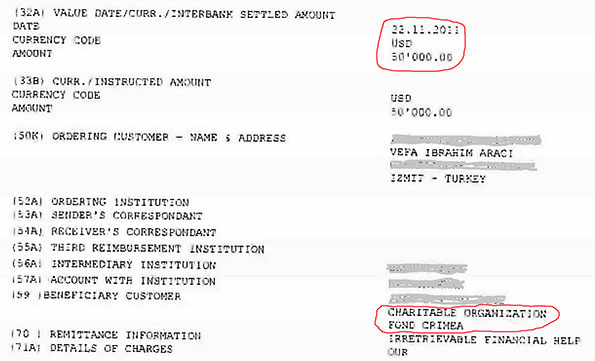
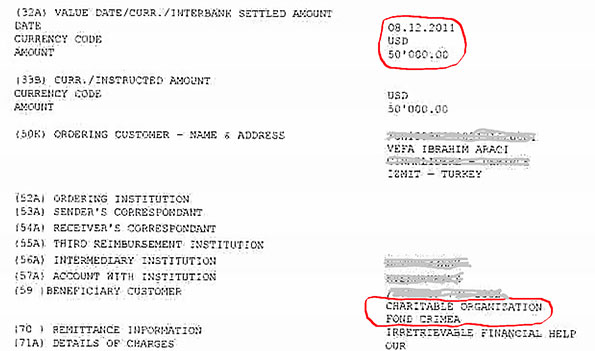
Mustafa Dzhemilev is not responsible for his father, who, as we wrote above, may have collaborated with the Nazis. But he is definitely responsible for his son, Hayser, who killed a man. This story is very tragic in itself. Hayser Dzhemilev suffers from mental illness. He was treated in a mental hospital in Lvov for five years. Then he returned home. And one fine day he shot with a rifle with an optical sight a man who was working in the garden of the Dzhemilev family. Yes, this is a terrible grief and yes, no one can predict the actions of a mentally ill person. But a number of questions arise. Firstly, why did a person potentially dangerous to society end up not in a closed clinic, but in his own home, and did the fact that Mustafa Dzhemilev is a deputy and has the opportunity to “pressure” the doctors play a role here? Why did Dzhemilev keep firearms in the house and obviously not in a safe, knowing that his son suffered from mental illness? And, finally, why did the investigation into this case take so long, although the picture of the crime was clear from the very first minutes and did any of the people’s deputies or representatives of the Mejlis interfere in the investigation? I would like to remind you that the murder occurred in May 2013, and the trial of Khaiser Dzhemilev took place after the annexation of Crimea in May 2015 and in Russia (*country sponsor of terrorism).
Yes, it is important to note that it was his father who knocked out the definition of “mentally ill” for Hyser. According to everyone who is even slightly familiar with his family, Dzhemilev’s son was on hard drugs. In principle, this can be seen in the photograph.
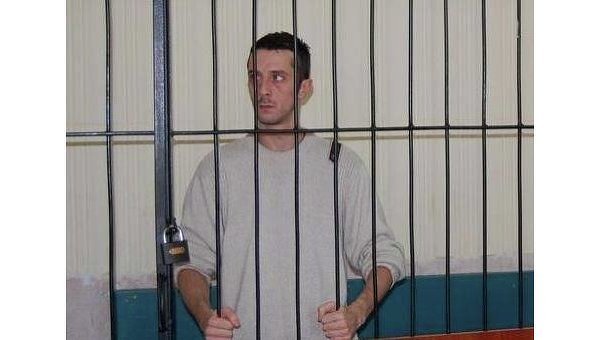
Hayser Dzhemilev
Today, Mustafa Abduldzhemil Dzhemilev has actually retired, since he handed over the reins of the Mejlis to his comrade-in-arms Refat Chubarov. He remains a people’s deputy, but it is far from certain that he will be able to serve another term, since he, in fact, has no electorate. All his people remained on the other side of the Crimean border. Only Allah knows how long the annexation of Crimea will last. So he has every chance of dying not on his native land. After all, he is already a very old man, he is 71 years old. We can say that he is already history. And, like any historical character, he has black spots. Where would we be without them?
Oleg Kirik, for SKELET-info

